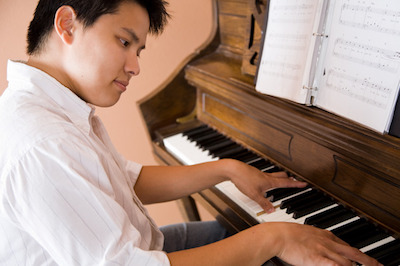Every piano player takes his or her own path when they sit down to play the piano for the first time. Most simply want to make music. They have their idols they hope to mimic and they want to play something recognizable in the short term.
Children differ in expectations from adults. Yet ultimately all want the same thing. To play. And to play well, no matter what level you’re at. 
Teachers will tell you there are several beginner piano problems that hold players back. And if you don’t correct these problems quickly, they can lead for more significant problems.
Technique
Kids and adults alike pick up a keyboard or a piano and start playing by themselves. Maybe they download an app to play. Or maybe they tinker out a sound. But in the process, they start developing bad habits. They hold their wrists in the wrong positions. They don’t play while seated properly. They use the wrong chair, the wrong setup, or even incorrect sizes for their physical form.
When you create good habits from the beginning, you play faster, better, easier from the very start. You don’t have to go back and unlearn problem habits that can make your style and position wrong.
Engage the ear properly
Have you ever played a piece of music only to realize you have no idea what you played? Reading notes isn’t the same as understanding the music you created. It’s important to listen to the sound you create and critique your playability along the way. Engage your ear and listen to every note. Hear what you’re playing. Visualize what you’ll be playing and then ensure it sounds like you anticipated.
Mindset
Mindset is different for children and adults. Children usually approach lessons with little expectation. Adults, however, are more likely to be discouraged when they don’t pick up the process somewhat faster.
In both, mindset is everything. It’s important to realize that to be good at playing the piano takes time. Don’t go into it with unrealistic expectations. Have an instructor help you create realistic goals. Then use those goals to stay on track as you move and adjust based on your interest and your needs.
Playing the piano takes time. But with a little work, you can enjoy playing for many years to come.

